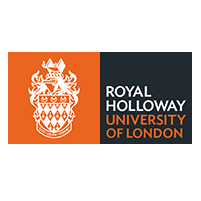
About the course
Course content
Excited by the role of mathematics in securing the modern electronics and communications that we all rely on? This intensive MSc programme explores the mathematics behind secure information and communications systems, in a department that is world renowned for research in the field.
You will learn to apply advanced mathematical ideas to cryptography, coding theory and information theory, by studying the relevant functions of algebra, number theory and combinatorial complexity theory and algorithms. In the process you will develop a critical appreciation of the challenges that mathematicians face in facilitating secure information transmission, data compression and encryption. You will learn to use advanced cypher systems, correcting codes and modern public key crypto-systems. As part of your studies you will have the opportunity to complete a supervised dissertation in an area of your choice, under the guidance of experts in the field who regularly publish in internationally competitive journals and work closely with partners in industry.
We are a lively, collaborative and supportive community of mathematicians and information security specialists, and thanks to our relatively compact scale we will take the time to get to know you as an individual. You will be assigned a personal advisor to guide you through your studies.
Mathematicians who can push the boundaries and stay ahead when it comes to cryptography and information security are in demand, and the skills you gain will open up a range of career options and provide a solid foundation if you wish to progress to a PhD. These include transferable skills such as familiarity with a computer-based algebra package, experience of carrying out independent research and managing the writing of a dissertation.
- Learn from internationally renowned mathematicians, cryptographers and communications specialists.
- Complete a cutting-edge research project under the supervision of cryptography and communications experts.
- Enjoy the flexibility to tailor your degree to your interests and specialisms.
- Join a mathematics department that ranks second in the UK for research impact and fourth for world leading or internationally excellent research output (Research Excellence Framework 2014).
- Feel at home in a friendly department where you will be known as an individual.
Course structure
Core modules
- Main Project
- Advanced Cipher Systems
- Channels
- Theory of Error-Correcting Codes
- Public Key Cryptography
Optional modules
In addition to these mandatory course units there are a number of optional course units available during your degree studies. The following is a selection of optional course units that are likely to be available. Please note that although the College will keep changes to a minimum, new units may be offered or existing units may be withdrawn, for example, in response to a change in staff. Applicants will be informed if any significant changes need to be made.
- Applications of Field Theory
- Quantum Information and Coding
- Principles of Algorithm Design
- Advanced Financial Mathematics
- Combinatorics
- Computational Number Theory
- Complexity Theory
- Inference
- Topology
- Applied Probability
Teaching & assessment
You will initially choose 8 courses from the list of available options, of which you specify 6 courses during the second term that will count towards your final award. You will also complete a core research project under the supervision of one of our academic staff.There is a strong focus on small group teaching throughout the programme.
Assessment is carried out through a variety of methods, including coursework, examinations and the main project. End-of-year examinations in May or June will count for 66.7% of your final award, while the dissertation will make up the remaining 33.3% and has to be submitted by September.
Your future career
By the end of this programme you will have an advanced knowledge and understanding of all the key mathematical principles and applications that underpin modern cryptography and communications. You will have advanced skills in coding, algebra and number theory, and be able to synthesise and interpret information from multiple sources with insight and critical awareness. You will have learnt to formulate problems clearly, to undertake independent research and to express your technical work and conclusions clearly in writing. You will also have valuable transferable skills such as advanced numeracy and IT skills, time management, adaptability and self-motivation.
Graduates from this programme have gone on to carry out cutting-edge research in the fields of communication theory and cryptography, as well as to successful careers in industries such as: information security, IT consultancy, banking and finance, higher education and telecommunications. Our mathematics postgraduates have taken up roles such as: Principal Information Security Consultant at Abbey National PLC; Senior Manager at Enterprise Risk Services, Deloitte & Touche; Global IT Security Director at Reuters; and Information Security Manager at London Underground.
The campus Careers team will be on hand to offer advice and guidance on your chosen career. The University of London Careers Advisory Service runs regular, tailored sessions for mathematics students, on finding summer internships or vacation employment and getting into employment.
- Open doors to a range of exciting opportunities in academic research or professional employment.
- Our strong ties with industry mean we understand the needs of employers and we have a strong track record of helping graduates into successful, high-level careers.
- 90% of our graduates are in work or undertaking further study within six months of leaving (Unistats 2015).